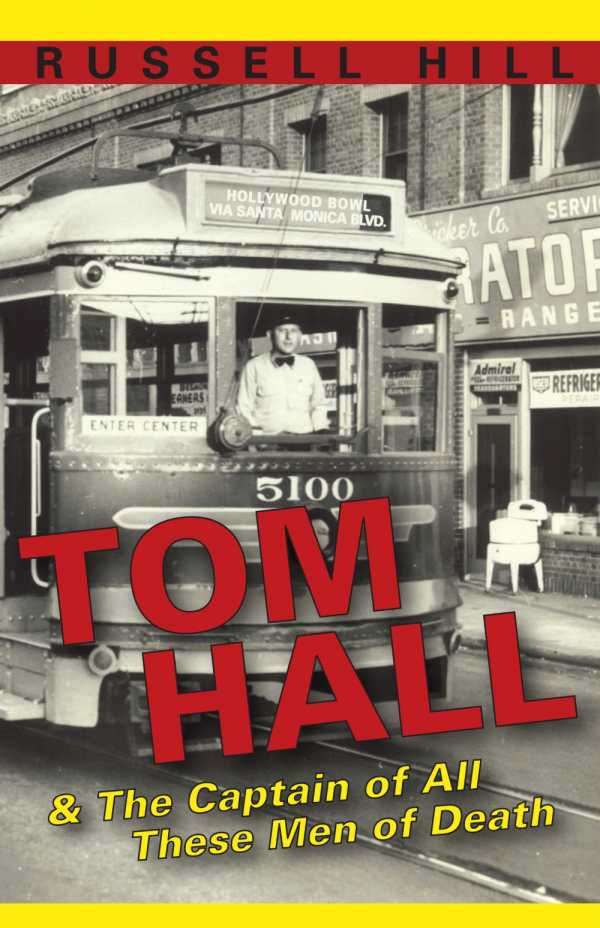Tom Hall & the Captain of All These Men of Death
This memorable novel from an expert writer is a story about a boy and his father, and how illness changes their lives.
With Tom Hall & the Captain of All These Men of Death, Russell Hill has written a coming-of-age novel that works just as well for its intended young-adult audience as it does for general readers. Hill creates a memorable child protagonist, a fully realized story, and a nice mix of tragedy and nostalgia. Tom Hall is a fast read, and an enjoyable one.
The story takes place in 1945, when twelve-year-old Tom is left behind with his father, who suffers from tuberculosis, after his mother and sister leave. The pair moves to a sanitarium in Arizona, where his father receives questionably effective treatment, and limited supervision lets Tom explore his surroundings. He befriends a group of Native American boys, gleans knowledge from the other patients, and learns his father believes the sanitarium isn’t helping to cure him.
Tom adapts to the way people fear getting close to infected patients, and to having to keep his father, Eddie, separate from the people he meets. He learns about death up close, as well as the reality that some patients will never heal. And, most importantly, he learns about his father’s relationship with Larry—a nurse at the sanitarium who moves with them when Eddie decides to relocate to Los Angeles and to try saving up for a better clinic there, the aptly named City of Hope.
Hill is an expert at setting a scene and using locations to drive the story. The sanitarium feels very real, both claustrophobic and a source of numerous adventures for a curious boy. The other places that become Tom’s haunts have a welcome nostalgic feel, including a carnival with an of-its-time sideshow and a racetrack where Eddie gets a job as a runner. The 1940s setting is described with a nice level of detail without taking over the story, and current events are mentioned only in passing—this is a story about a boy and his father, and how the latter’s illness changes their lives.
Though the story is told from the perspective of an older Tom looking back on his childhood, the first-person narration still feels like it’s coming from the perspective of a twelve-year-old. He gradually comes to important realizations, particularly about the sanitarium and Larry’s real role in his father’s life. He is far from a perfect child and becomes an adept liar as he learns to navigate the unusual specifics of his life. However, he remains a reliable narrator, as the story reveals information as Tom learns it. Hill really pulls off that difficult perspective in writing a memorable novel.
Reviewed by
Jeff Fleischer
Disclosure: This article is not an endorsement, but a review. The publisher of this book provided free copies of the book and paid a small fee to have their book reviewed by a professional reviewer. Foreword Reviews and Clarion Reviews make no guarantee that the publisher will receive a positive review. Foreword Magazine, Inc. is disclosing this in accordance with the Federal Trade Commission’s 16 CFR, Part 255.

